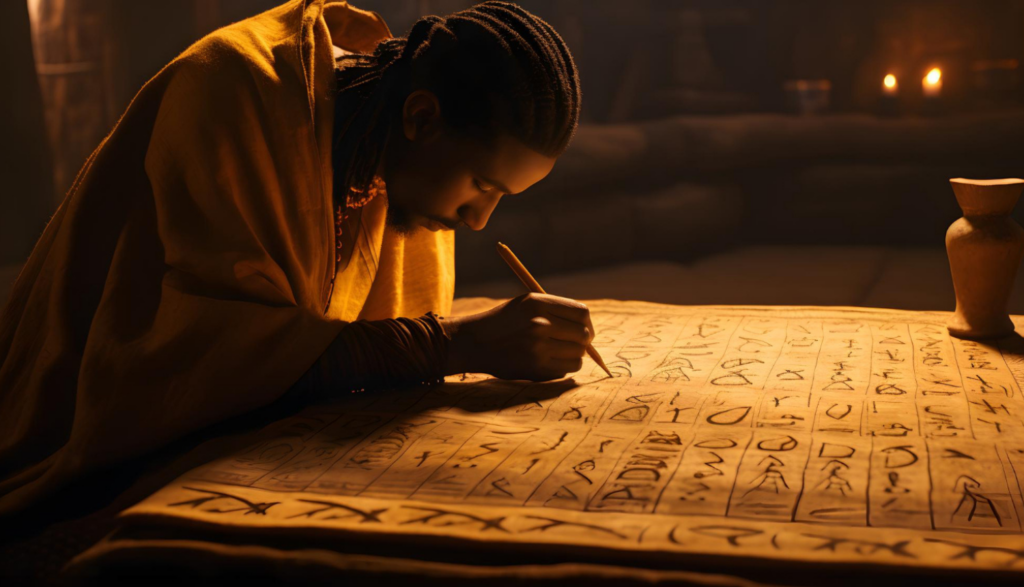In ancient Egypt, numerology was deeply woven into the fabric of their spiritual and mystical worldview. Numbers were not mere mathematical symbols but sacred representations of cosmic forces and divine principles. Egyptians believed that numbers had inherent power, which could influence both the physical and spiritual realms. Through numerology, they sought to understand the universe, decipher hidden meanings, and communicate with the divine.
The number 1 was associated with the concept of unity and the divine creator, symbolizing the source of all existence. The number 2 represented duality, often linked to the balance between opposites—such as life and death, light and darkness, male and female. These dual forces were fundamental to Egyptian cosmology and the cycles of nature.
The number 3, revered for its representation of harmony and balance, was central to the Egyptian concept of the triad. Triads were often found in their deities, such as the powerful trio of Osiris, Isis, and Horus, representing life, death, and resurrection. The pyramids themselves, with their three-sided structures, reflected this sacred geometry and the idea of spiritual ascension.
The number 4 symbolized stability, reflected in the four cardinal points and the elemental forces of earth, air, fire, and water. Egyptians used this number in their architectural designs, ensuring that temples and monuments were aligned with the four directions to harmonize with the cosmic order.

One of the most significant numbers in Egyptian numerology was 7, which symbolized perfection, completeness, and the divine. This number often appeared in religious texts, rituals, and tomb inscriptions, especially concerning the journey of the soul in the afterlife. The seven stages of the afterlife journey, the seven gates of the underworld, and the seven scorpions of Isis all highlight the mystical importance of 7.
Related: Repeating Numbers That Symbolize Peace and Harmony
Egyptian priests and scholars studied numerology as a tool to understand cosmic patterns, predict events, and interpret dreams. They believed that the alignment of numbers in the stars, the layout of the temples, and even the timing of ceremonies could influence the favor of the gods and the outcomes of their spiritual endeavors. This practice was not only spiritual but also practical, guiding the construction of Egypt’s monumental architecture, such as the Pyramids of Giza, which were built in accordance with precise mathematical and numerological principles.
In this way, numerology was central to the Egyptians’ mystical practices, shaping their views on the afterlife, religious rituals, and the structure of the universe. For them, numbers were not only tools for understanding the world but a bridge between the material and spiritual realms, unlocking the mysteries of life, death, and the divine. This ancient numerological wisdom continues to fascinate and inspire spiritual seekers and scholars today, offering insight into one of the world’s most profound and enduring civilizations.





















